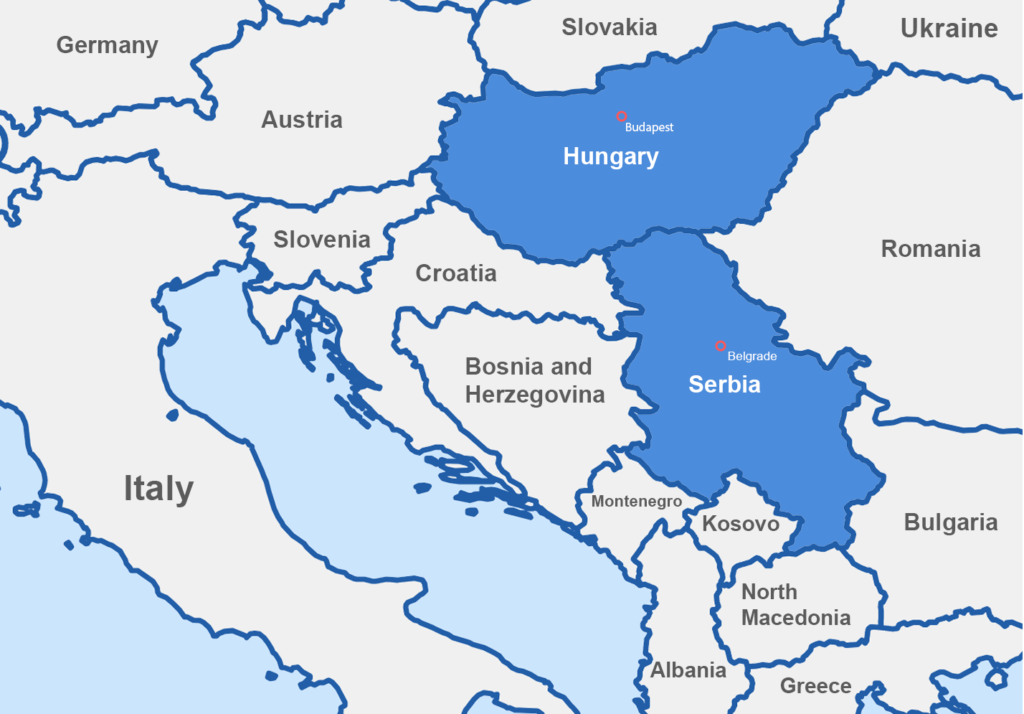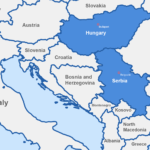It was on April 1, this year that Hungary and Serbia signed a military agreement. Hungary is a NATO member, Serbia is not. One might be tempted to think that once we have NATO in most of Europe, no other military alliance – agreement – cooperation outside NATO is possible. Lo and behold, it is. Why?
All uniting organizations – whether economic or military – sooner or later (rather sooner) begin to fall apart simply because the interests of the member states are discrepant and also simply because dominant states usually cannot restrain themselves from throwing their weight about, which naturally pushes the weaker players to look for ways out. Now Serbia is a kind of a political odd man out: it neither belongs to the European Union nor does it belong to the Atlantic military alliance. Worse, on March 18 this year in Tirana, Albania, Kosovo and Croatia signed a joint declaration of cooperation on defence, clearly a measure directed against Serbia. Hence, Belgrade needs partners. Hungary is a member of both the EU and NATO, but – as is well known – Hungary’s leadership is not compliant with the policies conducted by Brussels and was not compliant with those of Washington during the time of the Biden administration, reason enough for Budapest to feel insecure and to search for support outside the two mentioned international structures.
The military agreement between Belgrade and Budapest is open to other signatories. Since Brussels has already alienated a number of member states, they might consider joining the Serbia-Hungary bloc. Slovakia comes to mind as first. Its political leaders have repeatedly thrown the gauntlet down for the EU to take up when it comes to the latter’s belligerent policy towards Russia. That would create a vertical north-south axis, which might be further joined by Czechia and Austria if only anti-EU parties take the upper hand there, which is quite possible. We would land up with a military and political bloc uniting most members of the former Austria-Hungary (Habsburg) Dual Monarchy.
Since Serbia has good relations with China, Beijing might try to expand its influence in the Balkans and central Europe a bit further. China means not merely the Middle Kingdom, but also the BRICS countries (of which Russia is one of the more important member). Brussels’ insatiable drive for dominance and the resultant pressure that it keeps exerting on Serbia and Hungary might push those countries into the Chinese embrace. Was not Moscow pushed into the alliance with China by the collective West?
More pressure on the part of the EU on the countries of this region might translate in a loss of influence that Brussels still has here. One needs only to think about Romania and the EU’s unprecedented interference in the presidential election there. Given a victory in the May election of a candidate who is not particularly pro-European, and given the offence that the Romanian nation experienced at the hands of the EU autocrats, all scenarios are on the table.
The Western world pays little attention to such things as the agreement between Serbia and Hungary. They see through such tiny entities, and that’s where they are wrong. The collective West thought little of BRICS for that matter and today BRICS is emerging as quite a threat to both Brussels and Washington. So much so that the declaration on the defence cooperation signed between Belgrade and Hungary might also aim at involving in it Republika Srpska, an autonomous part of Bosnia and Herzegovina, which territorially adjoins Serbia. Republika Srpska is a fully artificial political creation of the managers of the world: rather than allow Serbs to live together in one state, the managers of the world have created Serbia outside Serbia, and have subdued this “outer” Serbia to yet another artificial political creation that is known as Bosnia and Herzegovina. A typical tinderbox that only waits for someone playing with matches. Yet, as we have remarked again and again, politicians are not individuals who are conversant with even the recent past to draw lessons from. Thinking about the Balkans, about Serbia proper and outer Serbia, thinking about Bosnia and Herzegovina, they should recall Sarajevo. Not the Sarajevo that became notorious during the wars that were waged in the former Yugoslavia towards the end of the twentieth century, but about the Sarajevo from the beginning of the same century. It was in that city where Gavrilo Princip, a Serb, carried out his successful assassination of Archduke Ferdinand struck the spark that ignited the whole continent. The Austria-Hungary Dual Monarchy – the predecessor of the European Union (made up of Austrians (=Germans), Hungarians, Czechs, Slovaks, Romanians, Croatians, Slovenians, Serbs, Poles and Ukrainians), after the initial military success suffered a debacle and disintegrated. It was virtually smashed to smithereens giving rise to a number of independent states which have existed ever since. Are we in for a historic repeat?





